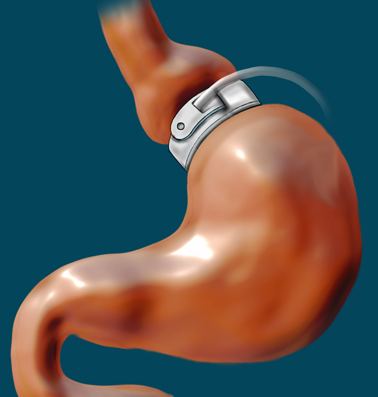In a recent study published in the journal Diabetes, Metabolic Syndrome and Obesity: Targets and Therapy, a team of Italian researchers reviewed the effectiveness of bariatric-metabolic surgery for obese diabetic patients.
The prevalence of type 2 diabetes is on the rise worldwide and is closely associated with an increasing frequency of overweight and obesity in western populations. Bariatric-metabolic procedures are increasingly seen as a viable therapeutic option for overweight patients, allowing improved diabetes control in most patients.
Researchers in the study point out that to achieve diabetes remission, multiple factors should be considered following weight loss surgery, with recent evidence indicating that bariatric-metabolic surgery is effective for patients with type 2 diabetes in comparison to conventional nonsurgical medical treatment, since patients with weight loss are more likely to achieve type 2 diabetes remission after bariatric surgery.
Roux-en-Y gastric bypass, which is also known as sleeve gastrectomy, is currently the most used surgical procedure because of its lower risks compared to biliopancreatic diversion and effectiveness in helping obese patients lose weight. The procedure is also associated with metabolic improvements.
In the review titled “Assessing the obese diabetic patient for bariatric surgery: which candidate do I choose?” Raffaelli M. and colleagues from the Division of Endocrine and Metabolic Surgery, Università Cattolica del Sacro Cuore in Rome, Italy argue that bariatric-metabolic procedures are an additional therapeutic option that allows for an improvement in the control of diabetes in the majority of patients.
According to the authors, the aim of bariatric surgery is the remission of the diabetic state, which is achievable in patients with a relatively short history of diabetes duration. They go on to note that clinicians should consider that surgery is not the last treatment option in patients who are morbidly obese and diabetic paints, but is an appropriate treatment, particularly in those patients who do not have their diabetes controlled or when patients have other obesity-related comorbidities.
The researchers suggest the need for bariatric-metabolic surgery to be performed after an adequate, careful risk-benefit study in high-volume centers with multi-disciplinary teams experienced in the management of obesity and diabetes, as it is crucial that patients receive a regular postoperative nutritional monitoring, with special attention required for a balanced diet regimen following surgery, monitoring of micronutrient status, and individualized nutritional supplementation.
The authors concluded the review by highlighting the need of a clarification of the duration of the benefit of surgery in diabetes remission, the mechanism of the success of surgery, and the mechanism associated with diabetic recurrence.


